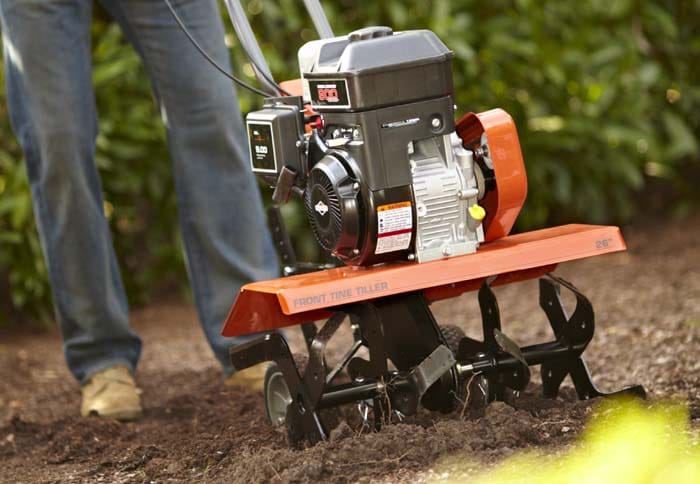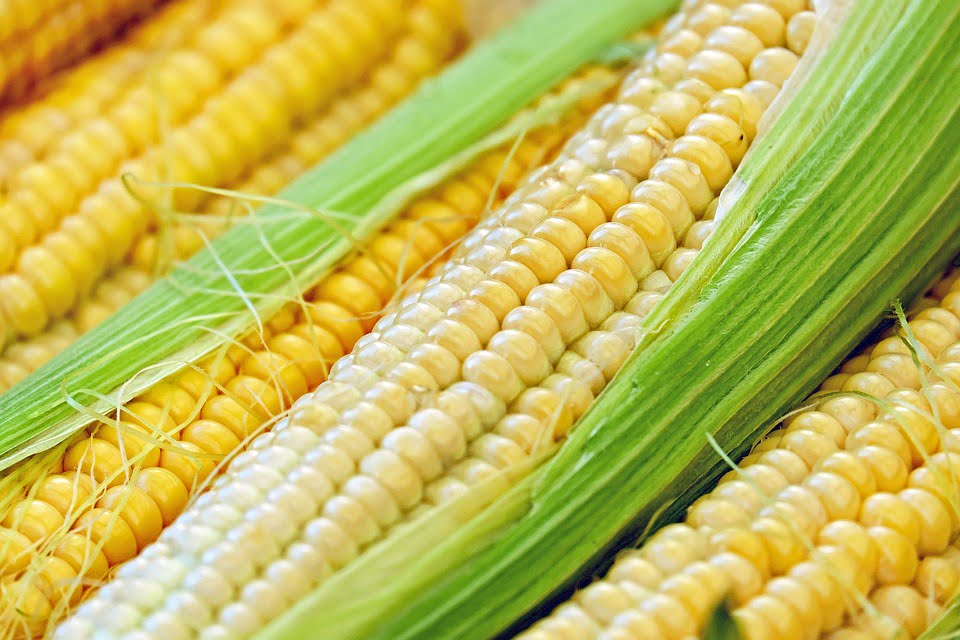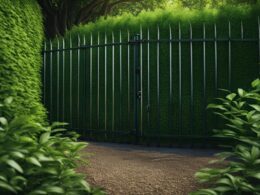Tilling soil is not necessary to have a successful garden. It’s completely possible to have a thriving garden without ever having tilled it. Some people believe that tilling is actually worse for your garden than just leaving it as it is. Tilling or not tilling your garden is a decision that every garden owner must make. This article will go over some of the pros and cons of tilling soil so that you can learn everything you should know about tilling soil.
What Is Tilling?
Tilling is defined as “to prepare and cultivate land for crops.” But how exactly are you preparing the land? Tilling breaks up the hard crust of soil and puts air back into it. This creates a soft soil for plants to be planted, and allows more nutrients to get to it. Tilling soil can be done using many different methods. It’s possible to till by hand although it’s a lot harder to do that. The easiest way is to use a tiller. A tiller has blades on it that spin while you push the tiller across the land. The blades dig into the ground and break up any hard soil. This process makes the soil softer, which means plants will have an easier time growing through it. Tilling also helps with more nutrient absorption.
Image Source: Smiling Gardener
Cons of Tilling Soil
Less Microorganisms
Some people believe that tilling is actually worse for your garden than not tilling. Tilling soil can disturb the microorganisms that live in your soil naturally. Disturbing these microorganisms may make your plants less healthy. Microorganisms add nutrients to the soil that are essential for proper plant development. Since tilling is a little rough on soil while it mixes and churns, microorganisms may shy away from churning soil and search for more peaceful places to dwell. The absence of essential microorganisms could result in plants that don’t have access to enough nutrients, causing them to suffer. There is no real evidence that this is the case however, it is simply the opinion of some gardeners.
Unnecessary Labor
Some people also believe that tilling is just extra, unnecessary labor. Tilling isn’t particularly easy and doing it takes some time. There are people who don’t see very many benefits of tilling soil, and feel like the extra labor isn’t worth it. A lot of people have stated that tilling soil has simply become a gardening tradition to do every Spring, and that there aren’t that many added benefits of tilling. These people opt out of tilling since they don’t really see a need for it. Again, this varies from person to person.
More Exposure to Erosion
Tilling soil means you’re mix up all the soil and exposing the top soil to all the elements, that would otherwise be protected under the crust. The top soil is now being exposed to the wind and the rain. The wind and the rain can wash or blow away the nutrients found in the top soil. This means that you might have to physically replace the soil that is being lost. Say you just tilled your garden and a big storm came your way. All the soil you just tilled would be washed away leaving you with nothing. Untilled soil would stay put because it still had its protective layer on top. Usually the timing isn’t that bad and storms don’t come right after you till, but it’s still a big concern for a lot of people.
Image Source: Elkhart Landscape
Pros of Tilling Soil
Starting Fresh
Tilling soil means you get to start fresh with your garden. Whatever was planted last year is now gone and there are no remnants left once you till. Now you can plant whatever you want without having to worry about anything that was planted previously. Soil that has been tilled looks brand new and is ready to have new crops or flowers planted in it.
Weed Prevention
Tilling soil also gets rid of all the weeds that may have grown in the last year. Since tilling goes deep down into the soil, all the roots of the weeds are being pulled up. This means that there will be fewer weeds that grow for the upcoming year. Tilling may be a lot of work to begin with but it might save you some time later when you don’t have to weed as often.
Better Aeration
Soil gets packed down from foot traffic, wheelbarrows, or anything else that goes across it. Tilling loosens up the soil and puts air back into it. This means that there will be more room for nutrients and water. Soil that has been packed really tightly doesn’t allow water to soak deep down to plant roots. Airy soil also allows more light to reach the roots of the plant. This will create healthier plants that aren’t being suffocated by rock hard soil.
Better Nutrient Absorption
Since tilling makes the soil aerated, more nutrients are being absorbed. Much like water, nutrients cannot be properly absorbed if the soil is packed too tightly. Sometimes plants start slowly dying, seemingly without a cause. A lot of times the cause is actually soil that is packed down too much. Not enough nutrients are getting to the plant’s roots. Tilling your soil could prevent this problem from happening.
Insect Prevention
Disturbing the soil also disturbs harmful insects. These harmful insects can set up camp in your garden and wreak havoc on your beautiful plants. Tilling your soil will destroy insect homes under the ground and make the bugs leave to find somewhere else that will be less disturbed. There’s less of a chance that insects will ruin your garden if you till your soil.
Image Source: Inkawall
Should You be Tilling Your Soil?
This is a question that no one can really answer except for you. There are many different pros and cons to tilling soil. Hopefully this article gave you some things to think about before you make a decision. Look at each of the pros and cons and decide what is most important to you.
Summing Up
Tilling soil is something that could be really good for your garden, or end up being unnecessary work. It’s all in the perspective. Rock hard soil would probably benefit from being tilled. Soft fertile soil may not need to be tilled and it would mean extra work for you that probably doesn’t need to be done. A garden full of weeds would be great to till, while a weedless garden wouldn’t. Rainy and windy climates might not be the best area to till in since fertile top soil might get washed away. Consider and weigh all the pros and cons and use them to help you learn everything you should know about tilling soil.
Image Source: Lowe’s
Related Article: Finding the Best Garden Tiller – Our Top 10 Picks and Reviews












